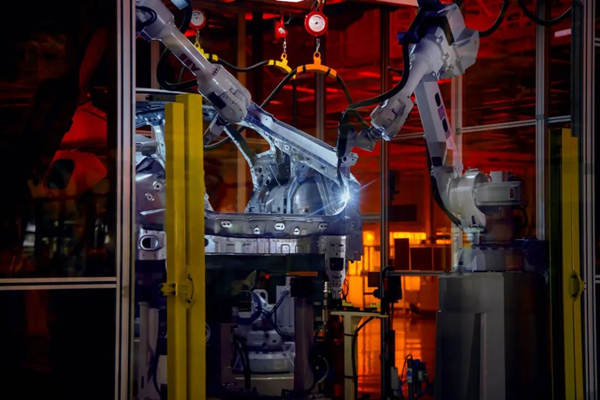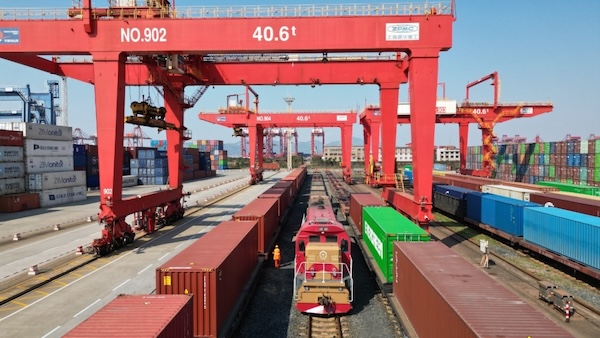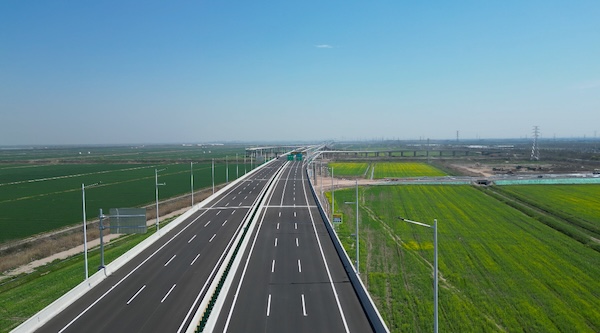Smart manufacturing gains steam in Ningbo

A digitalized workshop in Ningbo, East China's Zhejiang province. [Photo/WeChat account: nbfb0574]
Ningbo in East China's Zhejiang province is emerging as a leading hub for advanced manufacturing and technological innovation.
New data reveals an impressive growth trajectory in Ningbo's industrial sector, with the city's total industrial output value skyrocketing from 200 billion yuan ($28.07 billion) in 2002 to an astonishing 2.43 trillion yuan in 2022. This represents an average annual compound growth rate of over 12 percent.
The added value of above-designated-size industrial companies in the city soared from 49.9 billion yuan to 533.94 billion yuan in the span of 20 years, an impressive 9.7-fold increase. The core industries of the digital economy have particularly stood out with an average annual growth rate of 16.4 percent over the past five years.
Currently, Ningbo is home to 17 future factories, 84 provincial-level intelligent factories (digitalized workshops), and 361 municipal-level intelligent factories.
These advancements have resulted in a substantial boost in productivity. For instance, the 361 municipal-level intelligent factories have increased their average efficiency by 39.6 percent. Additionally, operating costs have been reduced by an average of 24.9 percent, while product development cycles have seen a remarkable average reduction of 36.6 percent.
Looking ahead, Ningbo has set an ambitious goal of becoming the pinnacle of smart manufacturing and innovation worldwide. By 2027, the city aims to establish 150 provincial-level intelligent factories and develop 20 provincial-level future factories and pilot projects.
Under the city's strategic plans, Ningbo envisions its industrial sector's added value surpassing one trillion yuan by 2026. By 2035, the city aims to comprehensively upgrade its industrial foundation and supply chains, establishing a modern industrial system led by the digital economy.

 Ningbo seabird project seeks international volunteers
Ningbo seabird project seeks international volunteers  Jakub's journey: From shipyard to sea
Jakub's journey: From shipyard to sea  Badminton Asia COO applauds Ningbo
Badminton Asia COO applauds Ningbo 


